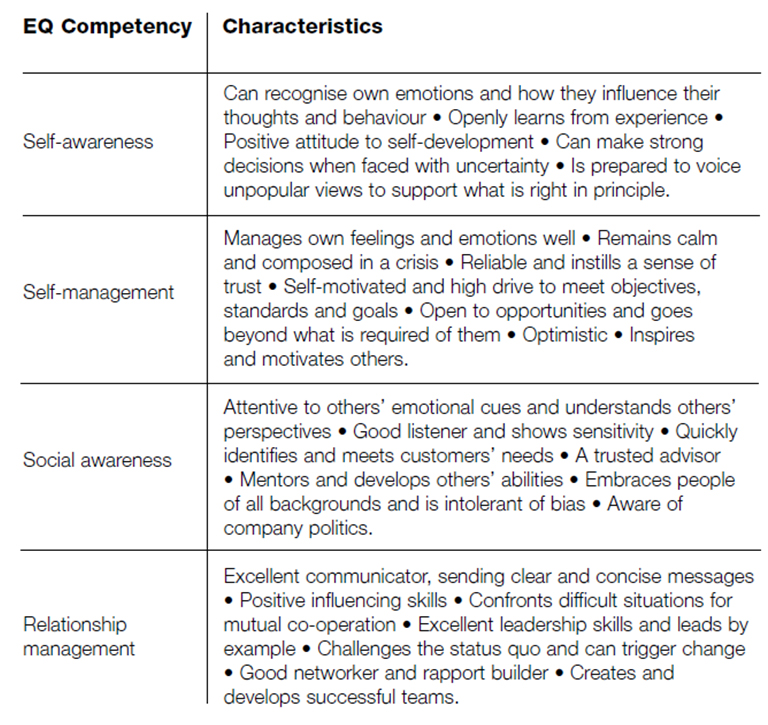Emotional Intelligence
The concept of emotional intelligence (EQ) recognises that academic ability alone does not create success as a manager or leader. We have all met people who are academically brilliant, but who have great difficulty with social and interpersonal relationships.
EQ recognises that all managers and leaders require this extra dimension of emotional intelligence. This does not mean that IQ is not important, but to be successful, you need to know how to recognise and manage your own emotions and identify and work with other people’s emotions. The ability to do this is referred to as emotional competency and is a key strength for any manager or leader.
Many studies have recognised that by developing capacities for identifying and dealing with their own emotions as well as those of others, managers can become effective in the many complex interpersonal situations they confront daily.
Emotional intelligence can be clustered into the four key areas described in more detail in the table below:
- Self-awareness – the ability to recognise your own emotions and appreciate how they impact upon your thoughts, behaviours and performance.
- Self-management – the ability to control emotions in a positive way, take initiative and adapt to changing circumstances.
- Social awareness – being able to recognise and understand emotional cues in other people and teams.
- Relationship management – the ability to develop and maintain relationships, inspire others, manage conflict and work well in a team.
Â
Emotional intelligence competencies

Â
How you manage your own emotions and those of others in the workplace has a key influence on your ability as a manager. Improving your emotional intelligence will allow you to:Â
- Reduce stress
- Identify and manage your emotions
- Observe and recognise non-verbal cues
- Manage work challenges
- Resolve conflict positively.
